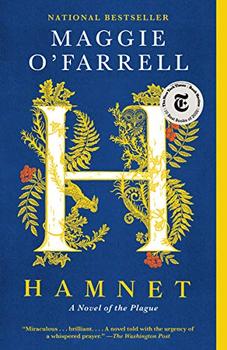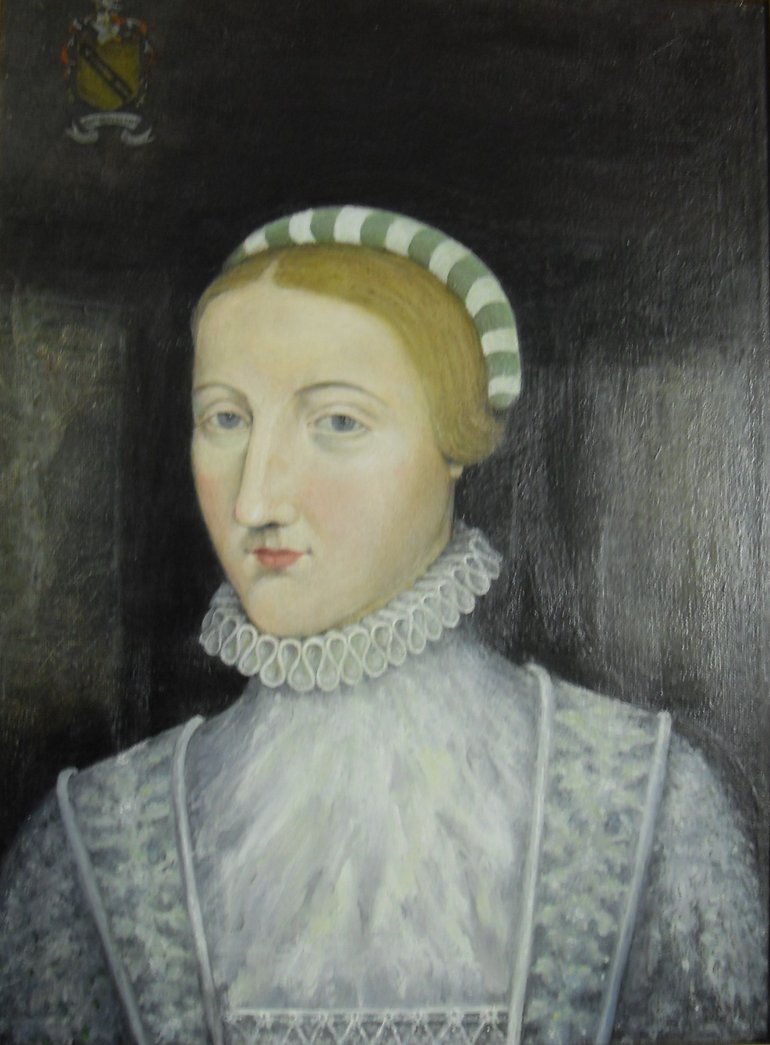Summary | Excerpt | Reading Guide | Discuss | Reviews | Beyond the Book | Read-Alikes | Genres & Themes | Author Bio

This article relates to Hamnet
 Little is known about Shakespeare's family, names and birth dates aside — and even names are tricky. Though commonly referred to as Anne Hathaway, Shakespeare's wife may have actually been named Agnes, according to a will left by her father. O'Farrell makes the decision to use the name Agnes in her novel Hamnet, but she references this confusion in the narrative itself, in a scene where she introduces herself as Agnes but Shakespeare mishears her and thinks she said Anne.
Little is known about Shakespeare's family, names and birth dates aside — and even names are tricky. Though commonly referred to as Anne Hathaway, Shakespeare's wife may have actually been named Agnes, according to a will left by her father. O'Farrell makes the decision to use the name Agnes in her novel Hamnet, but she references this confusion in the narrative itself, in a scene where she introduces herself as Agnes but Shakespeare mishears her and thinks she said Anne.
The real Agnes, or Anne, was born in 1556, likely in a town called Shottery near Stratford, and was raised by father Richard, a local landowner, and stepmother Joan in a one-story farmhouse called Hewley Farm. There were eight children in their home, three by Anne's mother and the younger five by Joan. Upon the death of her father in 1581, her brother Bartholomew took over the running of Hewley.
Anne was eight years older than Shakespeare, who was born in 1564. They married when she was 26 and he was 18, and their daughter Susanna was born six months after their wedding. Once married, Anne left Hewley Farm to move in with Shakespeare's family on Henley Street. Their twins Hamnet and Judith were born in 1585. They were likely named after the local baker who later witnessed Shakespeare's will, Hamnet, and his wife Judith.
Shortly after the birth of the twins, Shakespeare left Stratford for London, though he would write often and visit his family on occasion (in 1611, he retired to Stratford for good). In 1596, Hamnet died at age 11. The cause was undocumented and therefore unknown to this day; however, it is generally believed that he died of the plague, which had hit the region the year before. Later that year, Anne, Susanna and Judith moved out of Shakespeare's parents' home and into New Place, the second-largest house in Stratford.
The influence of Hamnet's death on the works of Shakespeare is not concretely documented. However, many believe that Constance's final monologue in King John, in which she mourns the kidnapping and death of her son Arthur, were written about Hamnet:
Grief fills the room up of my absent child,
Lies in his bed, walks up and down with me,
Puts on his pretty looks, repeats his words,
Remembers me of all his gracious parts,
Stuffs out his vacant garments with his form;
Then have I reason to be fond of grief?
It is believed that Shakespeare wrote King John in the 1590s but it is unclear exactly when, so it may or may not have been written after Hamnet's death. King Lear, however, was composed in 1606, and some of the final words Lear speaks over the dead body of his youngest child Cordelia echo the same rawness and emotional intensity of Constance's final words:
No, no, no life!
Why should a dog, a horse, a rat, have life,
And thou no breath at all? Thou'lt come no more,
Never, never, never, never, never!
The effect of Hamnet's death on Anne is even more uncertain, as no further details of her life were recorded, but Maggie O'Farrell gives voice to her grief in Hamnet.
Shakespeare and Anne remained married until Shakespeare's death in 1616, and he left her his "second-best bed" in his will. This detail has been perceived as a slight against Anne, but in all likelihood it was a reference to the fact that the best bed in their home was kept in the guest room, meaning the second-best was their marriage bed. Anne died in 1623.
Susanna went on to marry John Hall, a local physician, and died in 1649. The Halls had one child, Elizabeth, who did not have children of her own. Judith married Thomas Quiney, a vintner, and had three children, all of whom she outlived. Her firstborn, named Shakespeare Hall after his grandfather, lived less than a year. Judith died in 1662, 66 years after her twin brother.
Painting of Anne Hathaway by Roger Brian Dunn based on drawing by Nathaniel Curzon, courtesy of Shakespeare Birthplace Trust
Filed under Books and Authors
![]() This "beyond the book article" relates to Hamnet. It originally ran in August 2020 and has been updated for the
May 2021 paperback edition.
Go to magazine.
This "beyond the book article" relates to Hamnet. It originally ran in August 2020 and has been updated for the
May 2021 paperback edition.
Go to magazine.
Your guide toexceptional books
BookBrowse seeks out and recommends the best in contemporary fiction and nonfiction—books that not only engage and entertain but also deepen our understanding of ourselves and the world around us.